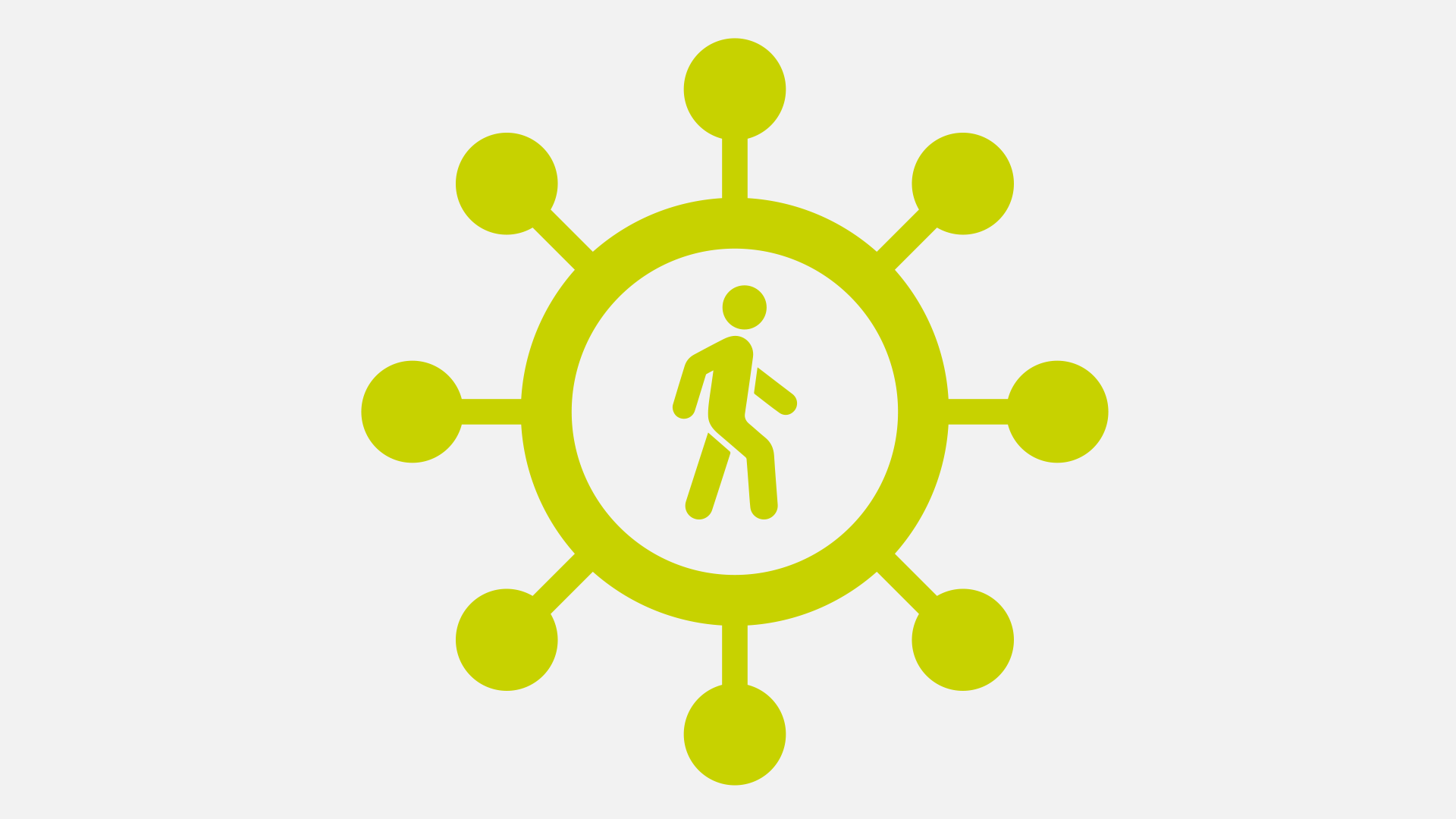If you are in distress, you can call or text 988 at any time. If it is an emergency, call 9-1-1 or go to your local emergency department.
- Public Resources, Tip Sheets
How to manage return anxiety as the lockdown lifts
As the COVID-19 curve flattens and the country begins to re-open, many people are facing a new set of concerns, sometimes called return or re-entry anxiety. The sources for this anxiety include worry about a heightened risk of infection, new social expectations, and the adjustment of routines to new work realities. Dr. Keith Dobson, professor of clinical psychology at the University of Calgary, shared some practical advice for people who may be experiencing stress or anxiety as they prepare to enter the post-lockdown world. 1. Remember that feelings about returning vary. Many aspects of re-entry will be perceived differently from person to person. While some will draw comfort from the increased social contact, others may experience heightened anxiety or dread when returning to social situations. As more workplaces welcome employees back, some will feel relieved to regain a dedicated workspace, while others may have difficulty leaving their remote-work lifestyle behind. Be mindful that what feels to you like an encouraging step forward might have the opposite effect on someone else. 2. Plan to renegotiate social norms The way we interact will look different than before the lockdown. Shared spaces will look different and get-togethers will be less frequent. To help curb feelings of disappointment, plan ahead. Think about how you can safely socialize with co-workers, friends, and family, and communicate the plan before you get together. Be prepared to set firm boundaries with people in your life who may be less concerned about the threat and unwilling to follow distancing guidelines.
3. Continue following public health advice
An important element in readjusting to public life is learning to take appropriate risks. Public health guidelines offer useful parameters to help you feel confident in your decisions and ease back into the world safely. Placing your trust in health authorities can also foster greater peace of mind by validating that you’re following the best available advice. Remember that you are not expected to be a public health expert — the professionals will set the limitations. All you have to do is work within them.
4 Recognize that different settings may follow different paths
People naturally compare themselves to others, but different settings may need to follow different paths in the re-entry phase. The place you work or the school your children attend may set different rules than others do. Some workplaces may permit or even encourage working from home when it was never common before. Try to respect these differences and accept that people who are responsible for these decisions are doing the best they can within a climate of dynamic and changing health advice.
5 Use gradual exposure techniques
Exposure is considered the best evidence-based treatment for anxiety. Within public health guidelines, try slowly re-introducing yourself to situations that typically induce some anxiety, rather than confronting them all at once. For example, if you feel anxious about returning to the social atmosphere of your workplace, start by scheduling a friendly catch-up call with one or two co-workers. Exposure allows you to readjust your assessment of the risk associated with the fear, reducing the anxiety it causes over time.
6 Monitor your symptoms of stress and anxiety
In times of change and uncertainty, some degree of stress and anxiety are expected. It’s important to regularly monitor your feelings to determine whether you need extra support. Lots of excellent advice is available on how to manage anxiety related to COVID-19. However, if you notice a marked shift in your functioning that persists for more than a few days, consider speaking to your doctor or mental health professional. Venturing back out into the world may feel like a heavy burden, but you don’t have to carry it alone.
- Public Resources, Tip Sheets
How to manage return anxiety as the lockdown lifts
How to manage return anxiety as the lockdown lifts
- COVID
As the COVID-19 curve flattens and the country begins to re-open, many people are facing a new set of concerns, sometimes called return or re-entry anxiety. The sources for this anxiety include worry about a heightened risk of infection, new social expectations, and the adjustment of routines to new work realities. Dr. Keith Dobson, professor of clinical psychology at the University of Calgary, shared some practical advice for people who may be experiencing stress or anxiety as they prepare to enter the post-lockdown world. 1. Remember that feelings about returning vary. Many aspects of re-entry will be perceived differently from person to person. While some will draw comfort from the increased social contact, others may experience heightened anxiety or dread when returning to social situations. As more workplaces welcome employees back, some will feel relieved to regain a dedicated workspace, while others may have difficulty leaving their remote-work lifestyle behind. Be mindful that what feels to you like an encouraging step forward might have the opposite effect on someone else. 2. Plan to renegotiate social norms The way we interact will look different than before the lockdown. Shared spaces will look different and get-togethers will be less frequent. To help curb feelings of disappointment, plan ahead. Think about how you can safely socialize with co-workers, friends, and family, and communicate the plan before you get together. Be prepared to set firm boundaries with people in your life who may be less concerned about the threat and unwilling to follow distancing guidelines.
3. Continue following public health advice
An important element in readjusting to public life is learning to take appropriate risks. Public health guidelines offer useful parameters to help you feel confident in your decisions and ease back into the world safely. Placing your trust in health authorities can also foster greater peace of mind by validating that you’re following the best available advice. Remember that you are not expected to be a public health expert — the professionals will set the limitations. All you have to do is work within them.
4 Recognize that different settings may follow different paths
People naturally compare themselves to others, but different settings may need to follow different paths in the re-entry phase. The place you work or the school your children attend may set different rules than others do. Some workplaces may permit or even encourage working from home when it was never common before. Try to respect these differences and accept that people who are responsible for these decisions are doing the best they can within a climate of dynamic and changing health advice.
5 Use gradual exposure techniques
Exposure is considered the best evidence-based treatment for anxiety. Within public health guidelines, try slowly re-introducing yourself to situations that typically induce some anxiety, rather than confronting them all at once. For example, if you feel anxious about returning to the social atmosphere of your workplace, start by scheduling a friendly catch-up call with one or two co-workers. Exposure allows you to readjust your assessment of the risk associated with the fear, reducing the anxiety it causes over time.
6 Monitor your symptoms of stress and anxiety
In times of change and uncertainty, some degree of stress and anxiety are expected. It’s important to regularly monitor your feelings to determine whether you need extra support. Lots of excellent advice is available on how to manage anxiety related to COVID-19. However, if you notice a marked shift in your functioning that persists for more than a few days, consider speaking to your doctor or mental health professional. Venturing back out into the world may feel like a heavy burden, but you don’t have to carry it alone.
SHARE THIS PAGE
RELATED

Review our Assessment Framework for Mental Health Apps — a national framework containing key standards for safe, quality, and effective mental health apps in Canada.

To help expand the use of e-mental health services, we developed four online learning modules based on our Toolkit for E-Mental Health Implementation, in collaboration with the Centre for Addiction and Mental Health (CAMH).

Stepped Care 2.0© (SC2.0) is a transformative model for organizing and delivering evidence-informed mental health and substance use services.
